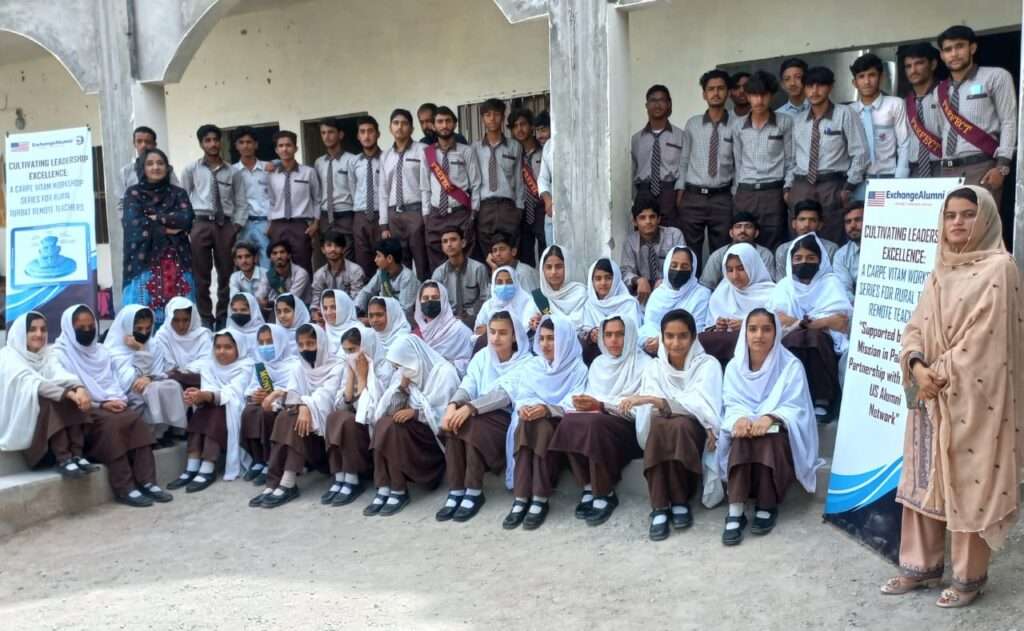Zeenat! A bright-eyed teacher in a small, remote school nestled in the rugged landscape of Turbat, Pakistan. Every day, she pours her heart into educating young minds, but a nagging worry persists. How can she become a better leader, not just for her students, but for the entire school community? She craves professional development opportunities, but in her corner of the world, such resources seem like a distant dream.
This was the reality for many dedicated educators in Turbat until Shazia Akthar Baloch, fueled by a passion for education, entered the scene. As a 2017 TEA-Evolution alumna and a veteran of community development initiatives, Shazia understood the challenges faced by these rural teachers. With a determined glint in her eye, she started her mission to transform not just classrooms, but the lives of countless students – and it all started with Zeenat, and teachers like her.

Shazia, with her extensive experience in community development and education, designed the “Cultivating Leadership Excellence” workshop series specifically for these underserved teachers. The program aimed to ignite a spark of leadership within them, ultimately transforming classrooms and impacting thousands of students.
The 15-week workshop series provided rural teachers with the tools they needed to thrive. From leadership development to improved teaching strategies, the sessions covered a wide range of topics. Importantly, the program fostered a sense of community and collaboration amongst the teachers.
“I have learnt a lot,” said Zeeba Ghafoor, a 35-year-old teacher from Turbat. “These sessions broadened my vision towards teaching, and I’m eager to implement these strategies in my classroom.”
Saqiba Hanif, another teacher, echoed Zeeba’s enthusiasm. “This is the first time I’ve had the opportunity to work on a project like this,” she shared. “It’s been an honor. I will definitely use what I learned to give back to my school.”
The impact of the program extended far beyond the teachers themselves. By empowering educators to become leaders and innovation drivers, the project fostered a more positive and engaging learning environment for students.
The number of beneficiaries speaks volumes: 25 teachers directly participated, impacting an estimated 3,750 students – both boys and girls. This is a testament to the project’s commitment to inclusivity and its potential to bridge the educational gap in rural communities.
Shazia’s project is a shining example of the power of collaboration. Supported by U.S. Mission to Pakistan in partnership with Pakistan-U.S. Alumni Network (PUAN), she was able to create a ripple effect of positive change in rural Pakistan. This story serves as an inspiration for future projects and a beacon of hope for underserved communities.





